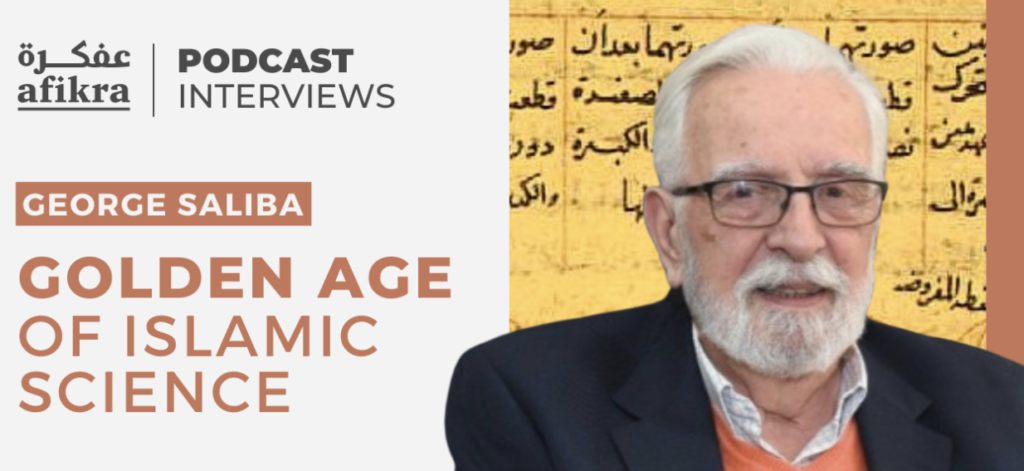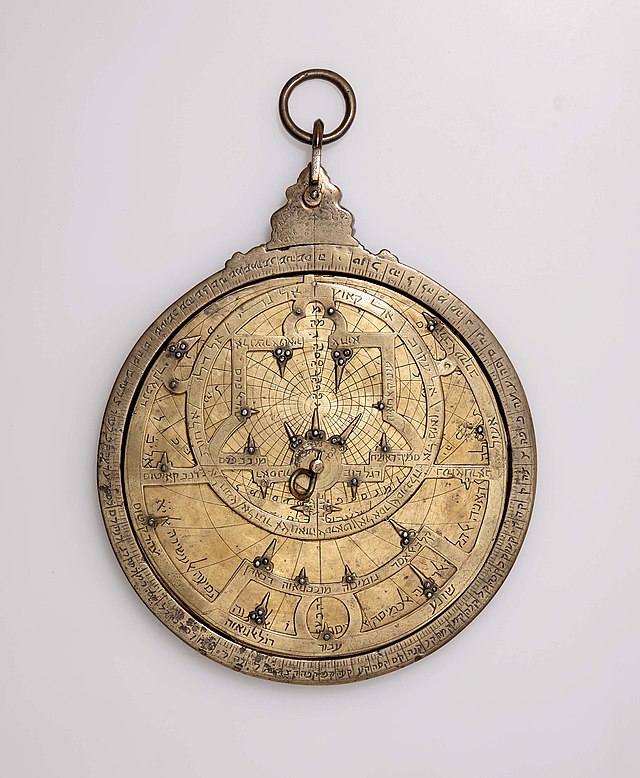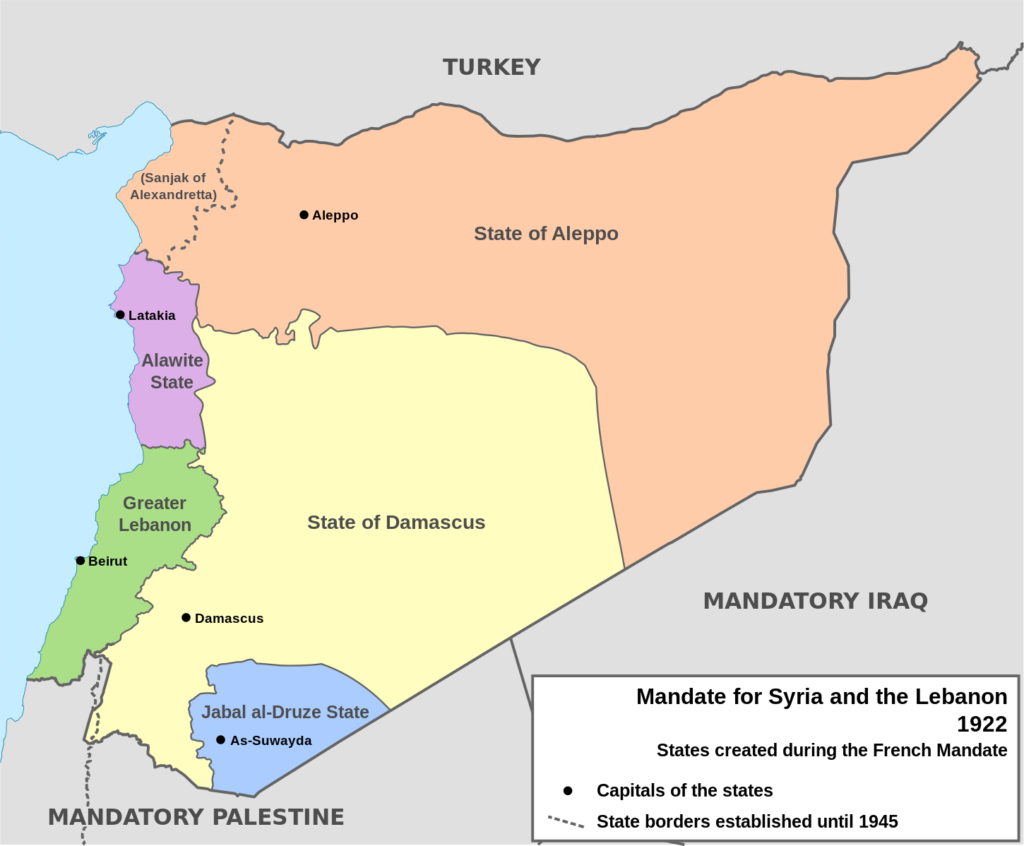What Was the "Golden Age of Islam," Really?
By Salma Heram / Arab America Contributing Writer

The Golden Age of Islam is often taken to be a period of scientific, economic, philosophical, cultural, and scholarly prosperity in Islamic civilization, estimated to be between the 8th and 13th centuries. This period is most commonly marked by advancements in mathematics and the sciences, as well as inventions in medicine and astronomy. Furthermore, it was a period of Islamic architectural and artistic flourishing, many artifacts of which can still be enjoyed today. George Saliba is a Lebanese-American Professor of Arabic and Islamic Science at Columbia University and holder of the Khwarizmi Chair in Arabic and Islamic Science at the American University of Beirut. This, of course, means that he has studied the period of the so-called “Golden Age,” in depth. In a recent podcast by Afikra, he debunks myths about the “Golden Age of Islam” and discusses how Muslim scholars shaped modern-day science. Follow along with as we uncover the misconceptions Saliba recounts.

When asked the question of “when is the Golden Age of Islam?,” Dr. Saliba begins by clarifying that this term and period distinction must be taken lightly, because it stems from Western orientalist literature, effectively squeezing an entire civilization into a somewhat arbitrary time period. Furthermore, he contends that defining such a period will be inherently inaccurate, considering that present-day scholars are looking at the time period and its advancements from a distance, meaning that one can never be truly accurate. As such, he explains that the “neither the beginning nor the end of the so-called ‘Golden Age’ actually fits what is written about it.” He further enlightens listeners that western orientalism studied other civilizations, not to learn from them, but to figure out how to subjugate them ahead of and during their occupation and colonization of eastern societies. He cites French colonizers as a prime example, who emulated the popular idea that the knowledge produced by the native civilizations they colonized was irrelevant. Therefore, the French believed that they had to bring their higher level of intellect to the local population, thereby denigrating eastern society and their production, rendering them almost insignificant. However, they still realized the value of the knowledge produced by the Islamic world, an example of which can be seen with Napoleon Bonaparte’s occupation of Egypt in 1798. Napoleon’s forces brought with them about 200-300 scholars and scientists, clearly seeking to learn from the Egyptians, and leading to the establishment of the Institut d’Égypte, or the Egyptian Scientific Institute, which still remains today. At the same time, however, Dr. Saliba asserts that the French wanted to study Islamic science so that they could control the population, aiding and contributing to the colonial project.

Dr. Saliba goes on to say that this thinking was not limited to the French, but was also emulated by the British as well. Take the English occupation of India in the 18th century, for example, where, according to Dr. Saliba, the British established the country’s first census. A defining characteristic of this census was the fact that they counted the Indian population by religious affiliation, thereby dividing the people and destroying the idea of a coherent society from the very beginning. This forced Indian society to only be seen as allegious to specific religions, rather than as one society. The French learned from this system, adopting it when they received the mandate of Lebanon and Syria from the League of Nations, counting the local populations by their religion, including Maronites, Jews, Sunni Muslims, Shia Muslims, etc. Dr. Saliba describes this as a marvelous way of destroying the society and sowing divisiveness into the people. He goes on to explain that all of this is to say that most of the thinking of Islamic history that is adopted by contemporary society today was done by colonial powers who were already past their own “age of enlightenment,” which was then followed by the age of colonialism. In this way, European powers were able to emulate “the role of the enlightened” subjugating other societies to “the role of the less civilized.”

The “Golden Age” was thus born out of this imbalance and disruption of society. At the same time, in Europe, the idea was pushed that reason can never go hand in hand with religious thinking. Looking at Islamic civilizations, it is clear that religious schools of thought emerged as the driving forces of legal procedures in Islamic society. Dr. Saliba thus contends that western societies were interested in understanding these legal procedures because it allowed them to understand what dictated and controlled the behavior of the population.
Through Dr. Saliba’s breakdown and explanation, the listener understands that the idea of a “Golden Age of Islam” is a product of an orientalist perspective that seeks to undermine the greatness of Islamic society in the Arab world. Attributing a “golden age” to a civilization we know to be glorious and powerful implies that during times outside of this “golden” period, the civilization was not productive or worthy of recognition. Dr. Saliba thus pushes one to deconstruct this notion, pushing us to question this attribution and holding fast to the ever-present glory of our ancestral civilizations.
Check out Arab America’s blog here!








